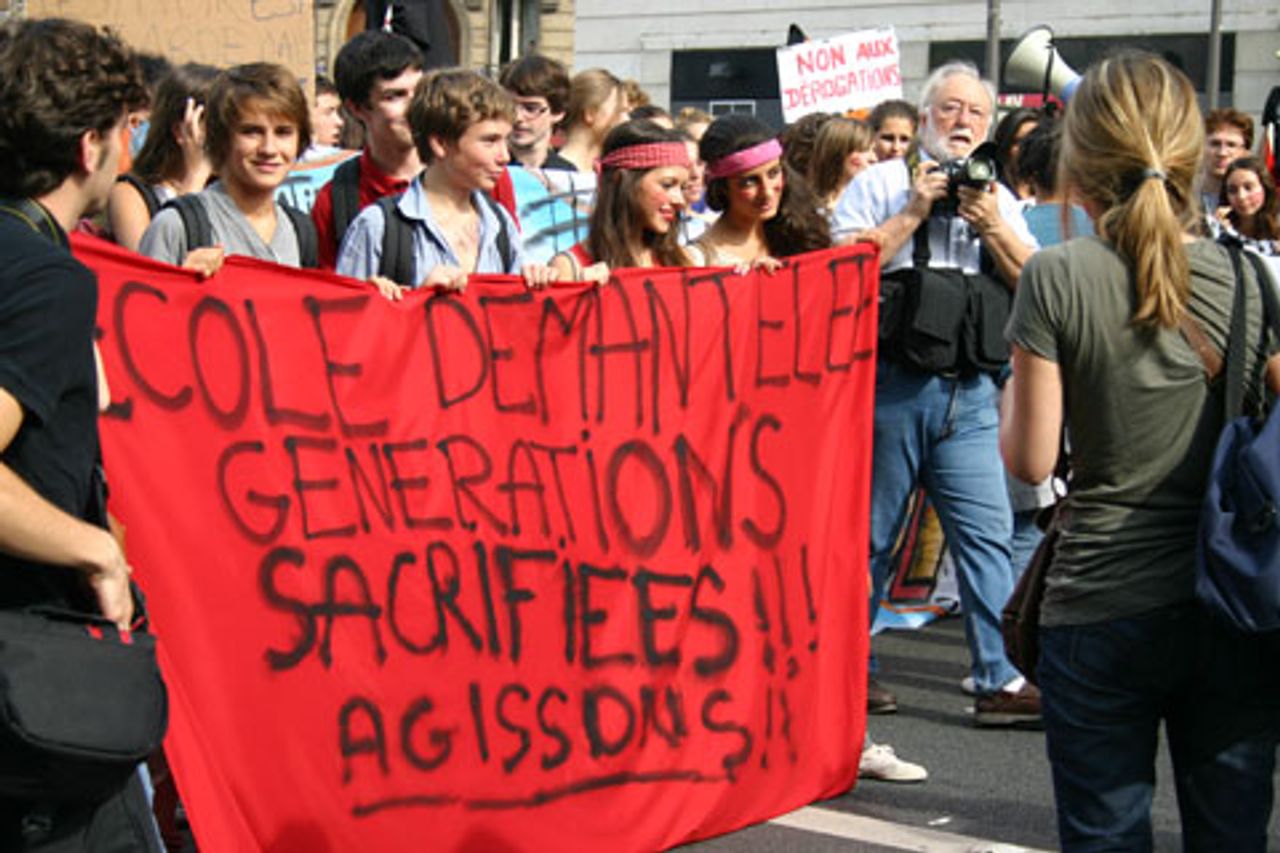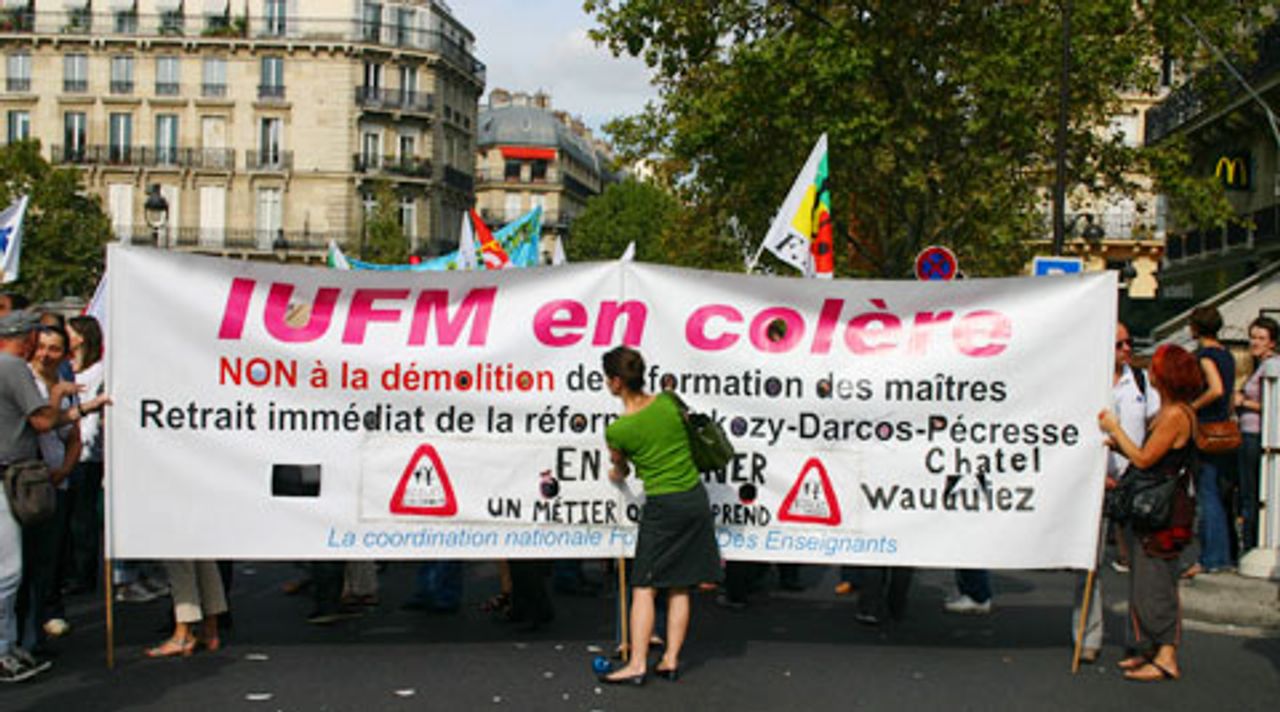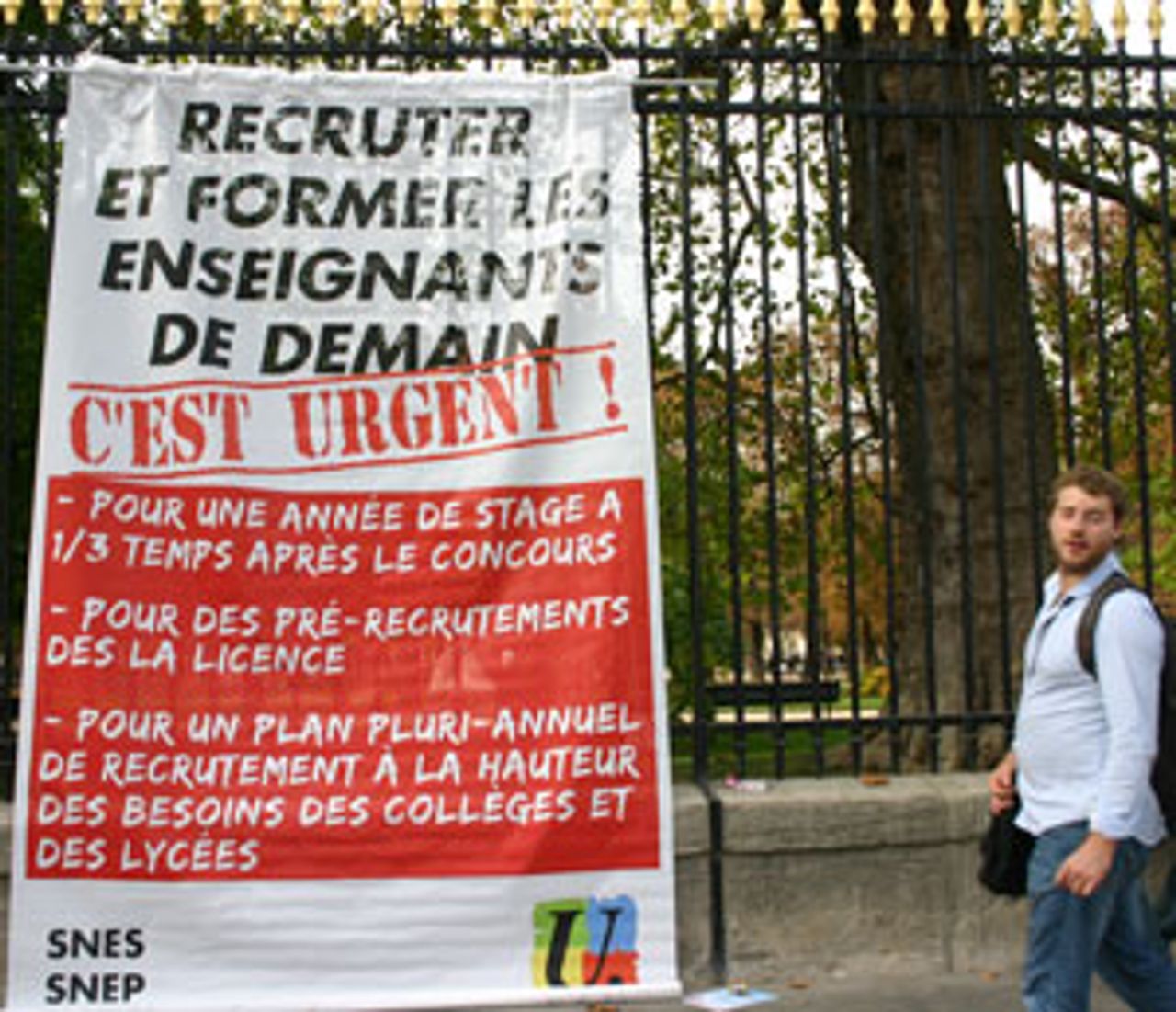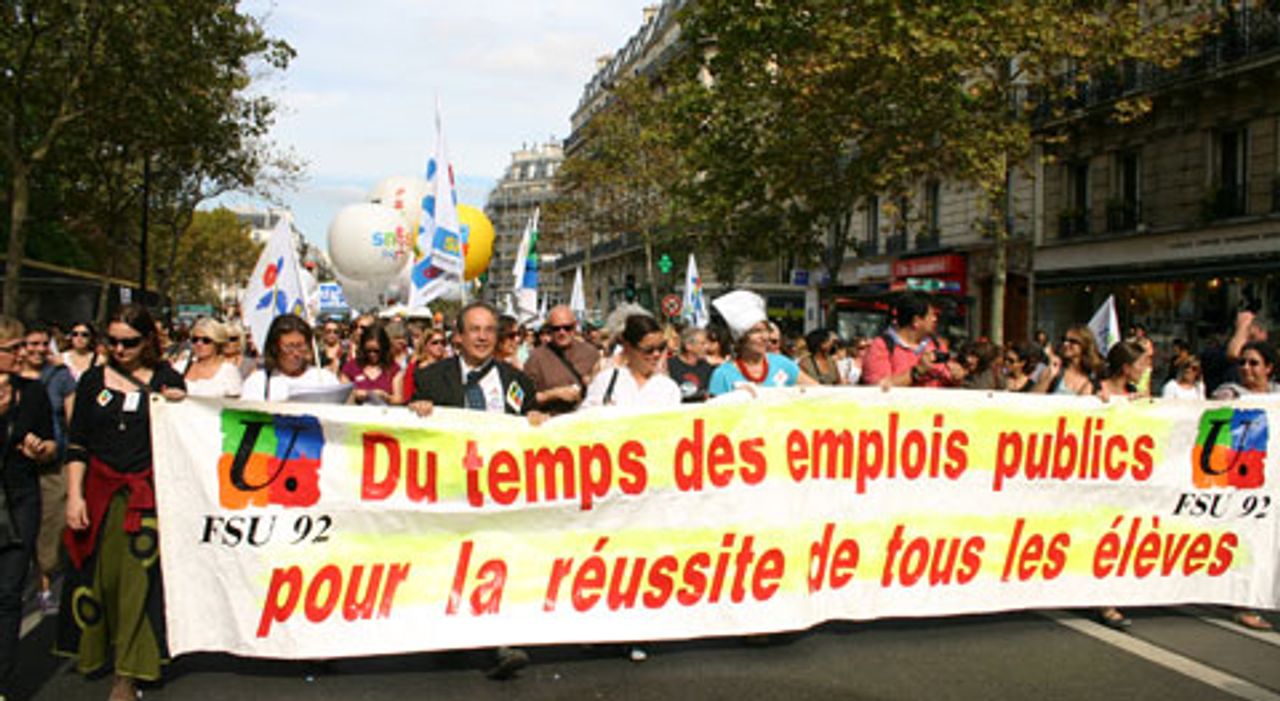 Banner reads: Time, public sector jobs, for the success of every pupil
Banner reads: Time, public sector jobs, for the success of every pupilFrench primary and secondary school teachers responded massively to a call for a one-day strike by their trade unions on September 27 against the government’s education cuts. Its policy of reducing the number of public service workers by the non-replacement of one out of two retirees has stirred popular anger. According to union estimates, more than half of the 800,000 public sector teachers struck for the day and 165,000 took part in demonstrations throughout France.
More than 45,000 teachers took to the streets in Paris to demonstrate their hostility to the government policy of reducing the number of teaching posts.
As a sign of growing resistance to the attack on workers’ living standards, teachers from the predominately Catholic private sector schools, representing 20 percent of teaching establishments, took part in the strike to defend teaching posts, for the first time since 1984.
Since 2008, 150,000 government jobs have been cut, including 70,000 teachers. The austerity programme is designed to reduce the deficit by destroying workers’ living standards at the behest of the banks and maintain France’s AAA credit rating.
 IUFM banner: Education dismantled—Generations sacrificed—We must act
IUFM banner: Education dismantled—Generations sacrificed—We must actThe claim of Sébastien Sihr, of the SNUiPP-FSU, the main primary school trade union federation, close to the French Communist Party (PCF), that the teachers’ trade unions wanted to deliver a “strong message in order that education be at the centre of our priorities as a country” is totally belied by the limited character of the strike. Even while confining the strike to a one-day action, the unions have calculated to isolate teachers and students from the rest of the working class, all of whom are under assault from the government’s austerity policies.
This and the record of the unions in betraying the mass protests in 2003 and 2010 in defence of pensions and social rights, leading to significant defeats and the deterioration of the quality of life of workers, emboldened Education Minister Luc Chatel to describe the one-day strike as “a strike, in September without revolutionary implications.” His assessment of the unions’ opposition to government austerity was to call it by its real name—that of false opposition on the unions’ part, the trade unions having already since 2003 sacrificed their members’ living standards by betraying the pensions struggle.
 Recruit-train tomorrow’s teachers
Recruit-train tomorrow’s teachersThe government rightly sees the unions as impotent and willing executioners of government policy. The posturing of the teachers’ unions is aimed at gathering the maximum number of votes in the trade union elections to the parity commissions with management bodies due to take place in early October.
French President Sarkozy responded to the one-day teacher mobilisation by trying to play off the private sector workers against the public sector workers, saying, “the public sector workers have a difficult job, but have a status which protects them. You [the private sector] are exposed; My duty as head of state is to first of all think of workers’ and managers’ interests who are launched into international competition and who need the support of the state.” The message here is that teachers are unproductive and need to be subject to the needs of the market.
Teachers on the demonstration in Paris, joined by significant contingents of high school students, rejected the government’s attacks on teaching posts. Demonstrators told the WSWS of their fears for their children’s education since the Sarkozy government took office.
One demonstrator said: “There will be measly retirement pensions for us, but those senators recently elected will be OK. They will take their suitcases (full of money from kickbacks in business deals) and retire. The solution for us is the permanent struggle—no concessions. We have to eliminate Sarkozy in the first round of the presidential election.”
A science teacher complained she had been a replacement teacher in several schools over a three-year period. In order to resolve the current problems, the presidential election was not the solution. “An international cooperation to resolve the economic problems is necessary. There is no solution within France. The future is the youth, that’s the base. By eliminating teacher posts, we are not helping deprived youth.”
 Public employees’ banner on the demonstration
Public employees’ banner on the demonstrationA recent report from the Organisation for Economic Cooperation and Development underscored the decline in French education standards. With 6.1 teachers to every 100 pupils or students, France was below Greece or Portugal. The report concluded that French teachers’ remuneration was “weak in comparison to international standards.” The cuts in education are hitting the most vulnerable sections of youth. More than 135,000 youth leave school each year without any qualification.
The extent of the teachers’ mobilisation showed workers’ determination to defend all the social gains since the Second World War. The teachers’ trade unions’ aim was, on the contrary, to limit the protest to the education sector with no call for other workers to participate, ignoring the global implications of the economic crisis and trying to channel workers’ frustration and anger behind the Socialist Party (PS) candidate most likely to face off the current president Nicolas Sarkozy in the presidential election in 2012, François Hollande.
Hollande has promised to restore most of the 80,000 teacher posts destroyed by the Sarkozy government. These empty promises are belied by the PS programme of reducing the public deficit by making the working class pay for it, in line with its social democratic colleagues George Papandreou in Greece and José Luis Zapatero in Spain.
The government’s cuts in education will have reduced the number of teaching posts by 80,000 between 2007 and 2012 as part of the austerity programme to save French capitalism from the abyss.
